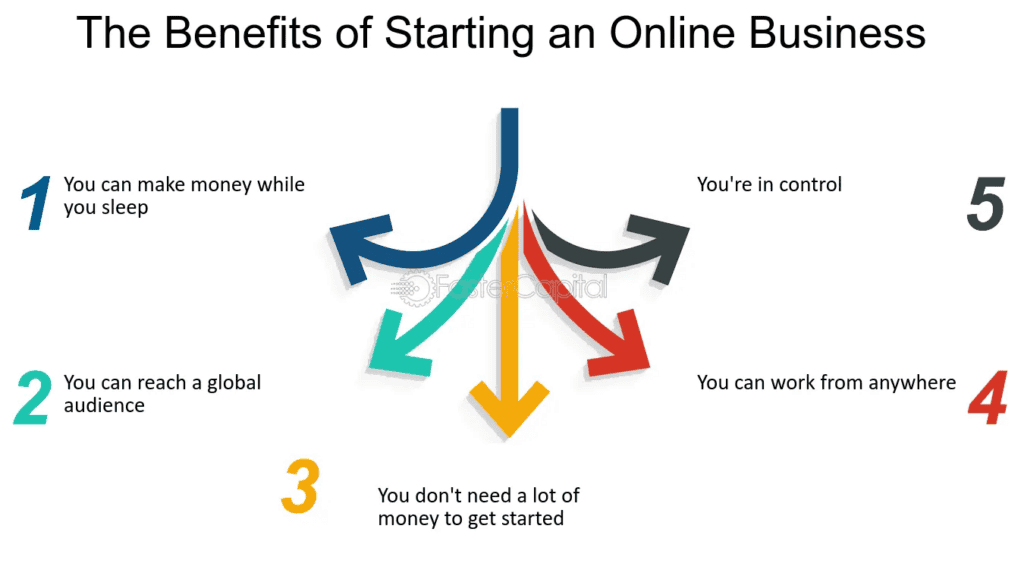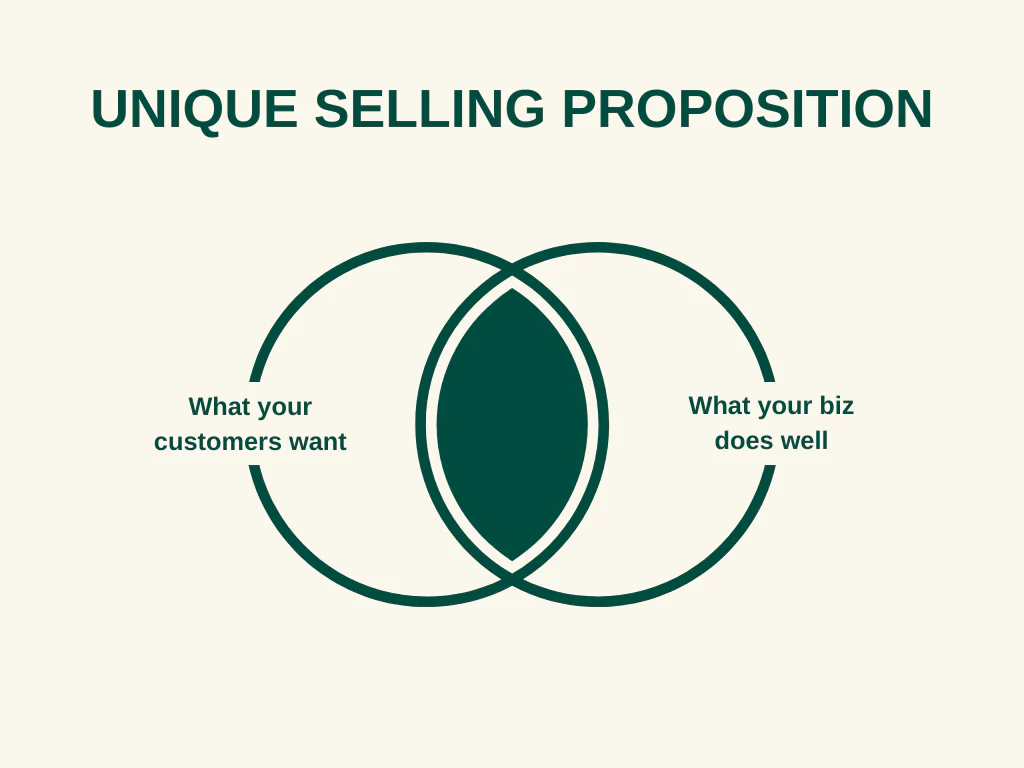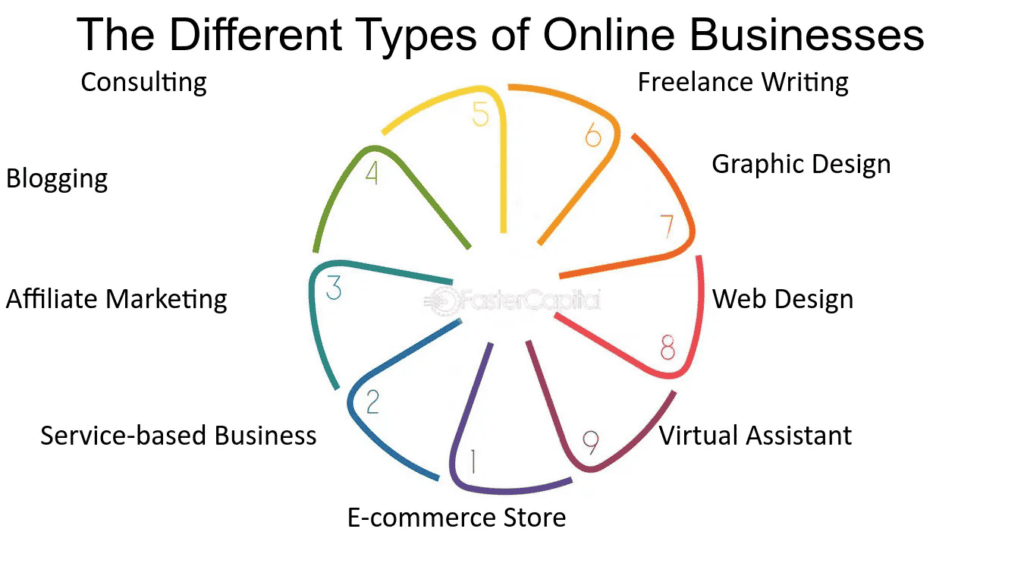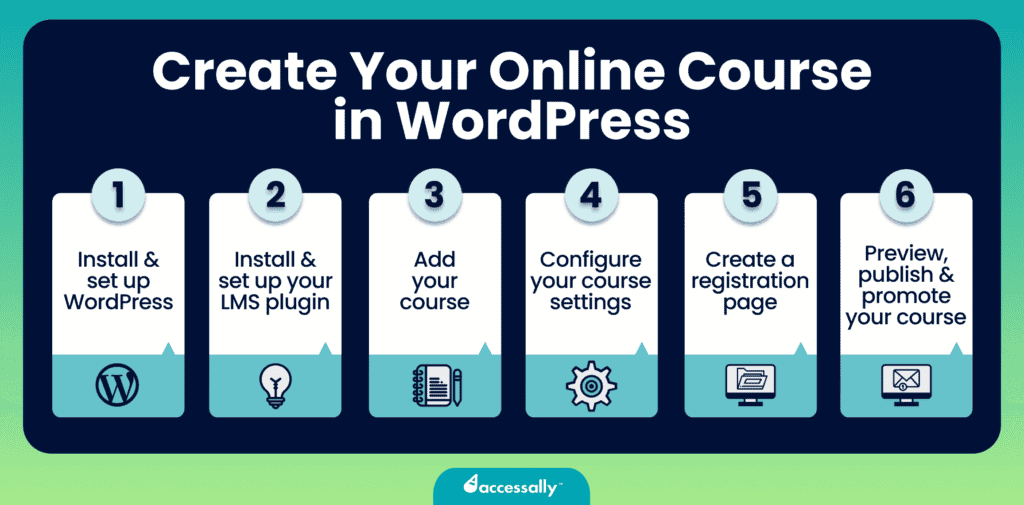Online business is not limited to only eCommerce.
Instead, various ventures have shifted online and are experiencing exponential growth and profits. The best part of starting an online business is that you do not need a professional background before launching.
And it’s the right time to start your online venture because now is the digital age.
This fact has prompted more people to start online businesses as their side hustles. Selling products and services allows sellers to fill in the gaps in the online shopping industry.
And if you, too, are planning to ride this wave of launching an online business platform, this blog is perfect for you because it is a one-stop-shop-all blog about starting an online business in 2024.
Table of Contents
Key Takeaways
- Selecting a niche for your online platform that you are passionate about and have a deep knowledge of is vital, as it will keep you motivated to keep going.
- Doing market research and validating your business idea through surveys and feedback is essential. This will help you understand the market gap, competitors, and consumer demand.
- Selecting the right business model will be a blueprint for how your global retail store will thrive and sustain itself in the long run.
- Offering a payment gateway that is trustable, reliable, and convenient enough for consumers to manage for checkout is an integral part of customer service.
- Creating a website that conveys the voice of your brand and its offerings will help attract traffic and nurture customers.
The Relevance of Online Business
Did you know that, according to Statista, eCommerce, an online business segment, has grown up to 300% within the last few years and is expected to make up 17.5% of global retail sales?
This is because we are living in the digital age.
A digital presence is significant for businesses to be professional and successful. This is because internet users have surged in the past decade. The internet’s bandwidth and unrestricted nature have allowed businesses to acquire patronage and consumers from everywhere.

Naturally, being able to reach more and more customers means more profits and sales. There are many benefits to starting an online business which is attracting more and more entrepreneurs, such as:
Low operating costs
Shifting business allows you to send orders directly to customers via suppliers.
This reduces the need for a warehouse, inventory, vehicles, and staff, meaning having a warehouse to operate an online business is unnecessary.
Additionally, direct shipping from customers reduces shipping time, thus making customers happy and facilitating hassle-free operations.
24/7 availability
Online businesses have websites that customers can visit at any time of the day and learn all about the services or products you offer from anywhere in the world.
This is not possible with offline businesses. This makes money while sleeping because the internet does the job for you.
Better customer support
The main benefit of running an online business is that you can answer clients’ inquiries and resolve customer problems quickly and easily.
You have many options, like creating detailed videos explaining and advertising your products and services, listing a knowledge base, or having dedicated customer service to resolve the problem in the least amount of time. This allows you to connect with your clients at any time and anywhere.
Boundless business
Brick-and-mortar stores or businesses will only connect with and attract customers globally once and if they invest heavily in franchising their business.
But online businesses are different. By starting an online business, you can be available to customers even when you, as an owner, are not working. This helps generate a more expansive audience pool, positively impacting sales and revenue.
You will be able to cater your services to consumers across the globe or even a country.
Feasibility to operate from anywhere
Not only is your online business available to customers globally, but you, the owner, can also operate from any corner of the world.
This benefit of online business is that it allows you to conduct business meetings remotely as long as you have a solid internet connection. With a virtual database, you can reduce paper-based dependence, thus making management far easier.
You have a detailed database of all the sales and purchases made, which makes tasks like managing purchases, order fulfillment, and payments for an online business significantly more straightforward and faster remotely.
Read also: Discover the Best Online Business Ideas for 2025: Profitable Paths to Success
How to Start an Online Business: A Step-by-Step Guide
A new generation of aspiring entrepreneurs is leveraging the digital era by building a highly lucrative and rewarding online business. But the struggle is needing to figure out where to start.
To help you, we are writing this comprehensive guide on how to start an online business.
Step 1: Choose an online business idea and niche
The first strike is the idea of what the venture should be about.
But for a beginner or someone who has yet to learn about starting a business, deciding what to build a business on can be confusing and hard.
Another question that often haunts beginners is whether the business will be profitable. Should you be taking this risk? But let us tell you that sometimes the best online business ideas are the most innovative solutions that set the standard apart and break the norm.
So, when choosing a business idea, list things you are passionate about and know most about. This will help you stay determined and motivated, essential for success.
Align your passion and expertise with customer interests and demands. This will ensure your business can offer tangible value to customers and help build credibility. For example, if you are good at yoga and know about it, offering yoga coaching classes online can be your business idea.
Furthermore, online entrepreneurship requires you to define the niche.
For example, if you plan to offer freelancing writing services, narrow it down to an industry of your expertise, such as real estate, telematics, jewelry, product description, and more.
You can consult the below image to find the right niche if you’re wondering how to start an online business.

Step 2: Conduct market research for online businesses
You need to validate your business idea to know the demand for the products or services you are gearing up to sell.
Conduct a keyword search to determine whether the audience is looking up for the product or service you sell on Google or any other platform.
The next step is to conduct thorough market research.
This is unavoidable because only through it will you get realistic insights into the target audience’s consumer behavior, competitors’ strategies, industry current trends, and successful tricks and tactics that will help you make the right business decision and achieve success.
You can do it through surveys, handing out samples, and a soft launch of your products to collect consumer feedback.
This helps you identify your competitors, their strengths and weaknesses, and market gaps and opportunities that your services and products can fulfill.
After that, create your unique selling proposition (USP)—your business’s secret trick for distinguishing it from the rest. A well-curated USP will give you a competitive edge and help you position your business to appeal to your target audience effectively.

Step 3: Choose a business model
It’s important to decide on your business model, as it can be your company’s blueprint or map to success and the ability to generate greater revenue.
It allows you to define your ambition, zero in on the nature of the business, and establish revenue goals.
Consider your business model the foundation on which you will build your business for greater profitability. But this is only possible when you have selected the right business model.
The business model maps out your online business’s route to generate income and sustain itself in the highly competitive and saturated market.
Here are some of the business models to consider choosing from:
- Business to business (B2B): This business model allows you to sell products or services (such as software solutions, wholesale goods, and consulting services) to other businesses. Alibaba is a popular example of this model.
- Business to consumer (B2C): This business model directly sells goods and services, such as electronics and fashion items, to the end consumers. Amazon is a prime example of this business model.
- Consumer to business (C2B): In this online business model, consumers sell their services and products to businesses. Platforms such as Airbnb and Upwork are good examples.
- Consumer to consumer (C2C): This business model facilitates peer-to-peer consumer transactions. Online marketplaces such as Etsy, Craiglist, or eBay are popular examples.
Consider the case studies of similar business ventures for more details or assistance in choosing the ideal business model for your small business.
Step 4: Develop an appealing business website
Now that you have decided on the product or service you will be selling and have completed the market research, it is time to advertise it.
Advertising is done by letting the world know you are ready to start your business. And what better way to do this than by setting up the right website for your online business?
Your website is your digital front door or store for your online business. A business website plays a vital role in developing your credibility, which is essential for your audience to trust your business.
With the right website, you can leverage digital marketing, target all the right keywords, and generate organic traffic.
A user-friendly business website mainly serves as the point of contact between the customers and your products and services.
To make a website that instantly catches the eyes and interests of the audience should be:
- Search engine optimized
- Work seamlessly on mobiles and other devices
- Design, content, and functionality should be user-friendly
Focusing on these aspects will allow you to create an experience that attracts traffic, generates leads, and converts visitors into customers.
Design the website with the target audience in mind
While designing the website, it is vital to consider the needs and preferences of your target audience.
An essential requirement is a visually appealing, easy-to-navigate website that successfully showcases your services and products. Ensure the offerings resonate with consumers and encourage them to explore your business further.
Utilise white space to create a clean and organized website layout. Select a color scheme that resonates with and enhances the brand’s identity.
Do not forget to include top-notch visuals to showcase your offerings. By creating a website design to target the audience, you can establish a strong online presence to attract and retain consumers.
Optimize for search engines
Search Engine Optimization (SEO) is important for enhancing your website’s visibility on search engines like Google.
By implementing SEO best practices, like keyword research, on- and off-page optimization, and link building, you can increase organic traffic to your website and attract customers.
Besides optimizing your site’s content, consider the technical aspects, such as website loading speed, site structure, and responsiveness on remote devices, which can heavily impact your search engine ranking.
Investing in SEO will boost your online presence and even promote sustainable and organic business growth.
Make sure the website is mobile-responsive
As smartphone and tablet usage continues to deepen, mobile responsiveness is vital in creating a user-friendly site.
A mobile responsive website automatically adapts to the layout and content based on the consumer’s device and screen size, ensuring an optimal browsing experience across multiple devices.
Creating and designing a mobile responsive site enables you to cater to the growing pool of mobile users and offer a fluent user experience that pushes for and promotes repeat visits and conversions.
Read also: Latest Online Shopping Trends and Statistics
Step 5: Consider legal aspects
Proper understanding and compliance with online business laws and protecting your intellectual property are vital aspects that cannot be ignored if you want to run a successful online business.
By acquainting yourself with the applicable laws and regulations and taking all the right measures to protect your assets, you will eventually minimize future legal issues and complications.
This will also safeguard your brand’s reputation.
The best way to familiarize yourself with the laws and regulations is to consult a legal professional and an industry expert who can ensure that you are running your online business within the boundaries of the law and are compliant.
Some of the basic legal requirements for running an online business are:
- Business registration: The first legal step is registering your venture with the relevant authorities when you begin your online business. This process might vary from location to location and from business nature and structure.
- Business license: Your business will need many licenses and permits to sell online if working in a regulated industry or as a sole proprietor or a limited liability company.
- Tax registration: Meeting tax requirements by acquiring a sales tax license or value-added tax (VAT) number as needed.
Comprehending online business law
Only by familiarising yourself with all the online business laws can you guarantee compliance and deter future legal notices and issues.
To ensure you operate legally, you must also understand and acquire all the permits, licenses, and regulations applicable to your business and region. Additionally, you must keep updated and informed of legislative changes and promptly modify your business operations as required.
Adhering to online business laws is the only way to protect your online venture and cement a positive reputation in the industry.
Intellectual property protection
Intellectual property protection is non-negotiable when safeguarding your business ideas, products, or services.
You can protect your precious assets by registering trademarks and applying for patents and copyrights to prevent unauthorized use or application. Ensure you own your intellectual properties properly by establishing and drafting clear agreements with manufacturers, designers, developers, or collaborators.
This is essential for protecting your brand, gaining an edge over your competition, and ensuring long-term business growth.
Step 6: Set up an operational framework
Building a solid operational framework is necessary for a successful business. Depending on your chosen business model, this may involve integrating online payment gateways, inventory management, and scheduling.
To begin with, choose a highly reputed and reliable payment gateway. Ensure that it integrates easily with your website.
A secure and user-friendly gateway ensures that the checkout process is smooth and convenient for customers. Most importantly, a reliable and trustworthy payment gateway helps win over customer trust, as they trust your business with their hard-earned money.
Also, when choosing a payment gateway, remember to check the availability in different regions because you will get customers from all over the globe.
Prioritize implementing proper security steps and measures like SSL or TLS encryption to protect data and secure transactions. This step safeguards customers’ personal and financial data and your business against cyber threats.
For product-based online ventures, managing inventory efficiently is vital. Invest in inventory management software that lets you know your inventory status to stock up on time.
After all, it could be better to keep consumers waiting to restock their favorite products.
Lastly, if building a service-based business, consider adopting an online scheduling tool to streamline your appointment bookings.
Read also: How to Sell on Etsy in 7 Easy Steps (2025)
Step 7: Prepare digital marketing strategies
If you are starting an online business, your marketing strategies must be digital or mobile.
Digital marketing is essential for promoting your online offerings, driving traffic, generating leads, and converting window shoppers into loyal customers.
Leveraging multiple current channels, like social media platforms, email marketing, and paid ads, will allow you to reach a broader audience and skyrocket brand awareness.
By devising effective marketing strategies and consistently monitoring the traffic generated on the site, you can optimize your blood, sweat, and tears while maintaining brand visibility and competitiveness.
Leverage the power of social media marketing
Social media platforms hold much power today and are also perfect for building brand awareness, engaging with your audience, and driving traffic to your website.
They allow you to create an online presence and showcase your products and services in the most innovative, creative format, which might not be possible on the business website.
By creating engaging and sharable content that connects with the audience on these platforms, you can successfully push your online business and increase sales.
Prioritize your target audience’s platforms and modify content to suit their requirements and preferences. This will help you build a solid online presence and enhance the effects of your social media marketing.
Implement email marketing campaigns
Email marketing campaigns are useful for customer relationship management, lead nurturing, and publicizing special offers. You can increase website traffic and maintain subscriber engagement by sending customized, targeted emails.
Some of the best ways you can start your email marketing strategies are:
- Draft a newsletter that is not only promotional but also provides valuable insights and content to your subscribers.
- Curate promotional emails about online sales, exclusive subscriber discounts, deals, or new launch details.
- Curate a targeted campaign that resonates with the interested audience and can answer their questions. These email marketing strategies will forge long-term customer relationships and drive returned business.
Investing in paid ads for immediate visibility
Paid advertisements on social media or sites like Google Ads can boost exposure and draw in clients quickly.
By spending money on sponsored advertisements, you may target particular demographics, drive quick traffic to your website, and track the effectiveness of your campaigns.
When creating your advertisements, develop messaging that will appeal to your target market and draw attention to your usps.
Ad performance tracking and campaign optimization guarantee a favorable advertising return on investment (ROI) and foster the firm’s expansion.
Step 8: Launch your online business
After you have designed a stellar website and marketed your business online and offline, you are finally all set to launch your business.
But before doing so, it is wise to double-check that everything functions properly.
This includes your website, well-stocked inventory, social media account, and your point of contact with the customers.
Start spreading the word on social media, sending out newsletters featuring alluring launch discounts, and doing the same on other marketing channels. This will help create a buzz about the new competitor in the industry and connect you with your target audience.
Now that the ribbon has been cut, it’s time to pop the champagne, sit back, relax, and watch your business success skyrocket.
Step 9: Grow and scale the online business
Going online with your small business can be a huge step. After a successful launch, it’s time to grow and scale your small business.
Expand your marketing efforts by exploring and investigating new market trends and redefining your sales strategies according to consumer behavior to attract more customers.
Adopt automation technology to enhance your productivity and refine your offering. Most importantly, establish good client communication to understand what customers demand and how to fulfill it. This will help you establish a lasting relationship.
Do not despair, as scaling a business is a gradual process.
So be reassured if your sales are slow in the first few months. A good example is Etsy, which took almost a decade to become what it is today—a global leader in artisanal goods. Continuously track your business progress, analyze data, and make data-informed decisions. This will help you gain success.
However, pivoting may be necessary if your online business fails to meet sales targets or if you witness shifting consumer behavior.
On the other hand, diversification can be a helpful tool for growth strategy, allowing you to explore new products or markets and attract a broader and more diverse customer base.
Read also: How to Create an Online Store in 7 Easy Steps
Best Practices for Starting Your Online Business
Launching a business, be it online or offline, takes work. But by following the right steps, you can make the process easy and fruitful. To increase your chances of becoming a successful entrepreneur, we have listed some best practices to help you.
Be real and authentic
Forming an authentic voice for the brand and being honest with customers will surely attract them. Around 88% of consumers place authenticity at the top of their list when deciding on a brand to shop and support.
And if you want your brand’s authenticity to shine the brightest, you need to be as transparent as possible about the company’s pricing, product journey, ingredients, and features.
Making actual calls for you to define your core values properly. Mimicking your core values into your company’s culture and work ethics will increase your credibility, making it easier for consumers to trust you.
Be flexible
Consumer shopping behavior and market trends are constantly changing, which might make it difficult to catch on in the beginning. However, if you want your business to remain relevant and profitable, it’s best to hop on to these shifting trends as soon as possible.
The best way is to awaken your offerings, make necessary marketing strategy changes, and experiment with newer business models.
You will also need to change your website content and performance.
Your capability of adapting to these trends as swiftly as possible and eliminating outdated ways of functioning will positively transform your business by elevating your brand’s perception and increasing conversion rates throughout the sales and marketing channels.
Keep the focus on the target audience
When starting an online business, it is easy to get bogged down in ways to increase profit margins. If you are not mindful and focused, you might even lose sight of the audience you cater to.
Your consumers are real people with real needs and demands. If you fail to understand their perspective, they might start feeling disappointed with your brand’s products and offerings.
So, stay connected with your consumers and communicate with them on different channels, be it social media or online forums.
Pay heed to their needs and desires and quickly respond to their queries and concerns. This proactive approach to strengthening ties with customers will provide precious insights that will further assist you in making decisions.
Read also: SaaS Business Model Working Explained
Kickstart Your Online Business With These Ideas
If you are confused about what to sell or what service to offer when you are considering starting an online business, here are some examples and ideas for online businesses.

Consulting business
Consultants assist businesses in various industries with problem-solving, including human resources, sales, and marketing. The ideal internet business venture for you can be consulting if you are an expert in a particular field.
Starting a consultancy business is also relatively easy. To begin, take these steps:
- Determine your specialty and the demand for your services in the market.
- Create a thorough service offering that details the issues you resolve and the outcomes you produce.
- Use an AI website builder to create a polished online presence.
- To foster trust, create a business email address.
- Engage in extensive local and online networking and use websites like LinkedIn to connect with potential customers.
- Consider providing complimentary webinars or workshops to showcase your knowledge and attract customers.
Read More: 41 Top Small Business Ideas
Online fitness training
Like many other service-based businesses, fitness instruction is being offered online. Online subscriptions, fitness applications, and publications generate enormous profits for well-known personal trainers like Kayla Itsines.
It is obvious that you should offer these services online if you have experience with fitness training.
Most virtual fitness instruction consists of recorded or live video classes. A digital fitness business can also contain recipe books, exercise manuals, and discussion boards where students can interact and exchange advice.
You can have all of these on your website for personal training.
Remember to use social media as you get started because the fitness sector is visually driven. An online presence on sites like YouTube, Facebook, TikTok, and Instagram can help you attract customers and grow your following.
Freelancing
If you want to write, consider starting a freelancing business.
To make your freelancing agency unique, identify a niche and USP. For example, if you are interested in and have expertise in movies and behind-the-scenes, you can offer review writing services for companies like Film Companion and other movie-dedicated podcasts and platforms.
Another lucrative option for writers is guest posting, which enables them to get money by penning pieces for other blogs under a different pen name.
In the competitive employment market, creating cover letters and resumes also provides a reliable source of revenue.
Sell online courses
There’s only one issue with products and services: finding the right ones and providing them both cost money and effort.
Digital products are very different.
A fantastic strategy to grow your coaching business is through online courses.
Once more, you’re selling something you already know, but this time around, it’s done in a more automatic, detached manner. If you provide coaching, advising, or freelance work in addition to this, you will already know that your target market is willing to pay more for your self-study courses.
However, you must first develop an audience to market digital courses, which can take some time.
If you want to start selling online courses, the infographic below will help you set one up on WordPress!

Agency
An agency is a company that contracts with other experts to offer services to customers.
You, as the agency’s leader, are in charge of overseeing staff members and independent contractors and upholding client relations.
Even while an agency model takes longer to develop, it can be a very profitable firm.
Building a clientele as a freelancer, coach, or consultant first, then beginning to assemble a team, is a quicker approach.
You shouldn’t use this company strategy if you don’t want to oversee a group of people. Taking care of staff requires more time and money out of your budget. However, you can make a significant influence with an agency if you establish a solid reputation.
Creator business
Creating content for websites like YouTube, TikTok, Substack, and Instagram allows creators to earn money.
Your material can be about anything: cooking, fitness, humor, makeup, or anything else.
Gaining popularity might take years. However, as long as your audience is active, you can earn money as a little “micro” influencer, despite what the general public believes.
Additionally, you must become an expert content creator if you want an engaged audience. Then, you may use affiliate marketing and sponsorships to make money from your audience.
eCommerce business
An eCommerce website allows you to sell to anybody, anywhere, at any time, and tap into a worldwide market.
E-commerce companies typically have lower launch and operating costs than physical storefronts.
Online retailers also give you access to powerful automation tools, tailored marketing, and consumer data analysis, which can help you increase revenue and optimize your business operations.
Concentrating on a specific specialty or investigating popular products might give you ideas for your online store. Although segmenting your expertise can lower traffic levels initially, it can also lessen competition and offer significant development potential.
Read also: How (Not) to Start a Blog in 2025
Conclusion
Starting an online business today can be highly lucrative and profitable. You can surely achieve success by selecting a suitable business model, choosing a niche you are passionate about, and following the steps stated.
However, remember to prioritize customer satisfaction by paying attention to their needs and shifting consumer behavior.
Establish a solid relationship with the target audience by answering their queries as soon as possible and having a proper communication channel.
Frequently Asked Questions (FAQ)
Q1. What are the minimum startup costs for an online business?
Although they can vary, the minimum launch fees for an online business often fall between $100 and $500.
A website builder or e-commerce platform membership ($0-$30/month), domain registration ($10–$15/year), website hosting ($3–$10/month), and initial marketing (such as social media ads, which can start at $50) are usually included in these fees.
Software tools and corporate licenses may incur additional costs. It’s critical to start small, concentrate on the necessities, and scale as the company expands.
Q2. How long does it typically take to start making a profit?
Turning a profit in an online business usually takes six months to two years.
This timeline varies depending on market demand, competition, marketing efficacy, and business style. However, persistent customer service, marketing, and operational optimization efforts can shorten this time.
Patience and intelligent preparation are essential since the first few months are generally spent developing a brand and consumer base.
Q3. What are the most effective marketing strategies for a new online business?
Pay-per-click (PPC) advertising, social media marketing, email marketing, content marketing, and search engine optimization (SEO) are all effective marketing techniques for a new internet firm.
Traffic and conversions can be increased by using social media platforms to interact with potential clients, producing insightful and timely content, optimizing the website for search engines, and running targeted advertisements.
Creating an email list facilitates direct communication and offers tailored to the customer’s needs.
Q4. Are there legal considerations specific to online businesses?
Yes, legal considerations are important for internet firms.
These include getting the required licenses and permissions, paying taxes, safeguarding intellectual property, abiding by data protection rules (including the CCPA and GDPR), and ensuring website terms of service and privacy policies are in place. Online companies must also abide by consumer protection laws and rules around shipping, returns, and online transactions.
A legal expert’s advice can guarantee that all requirements are fulfilled.
